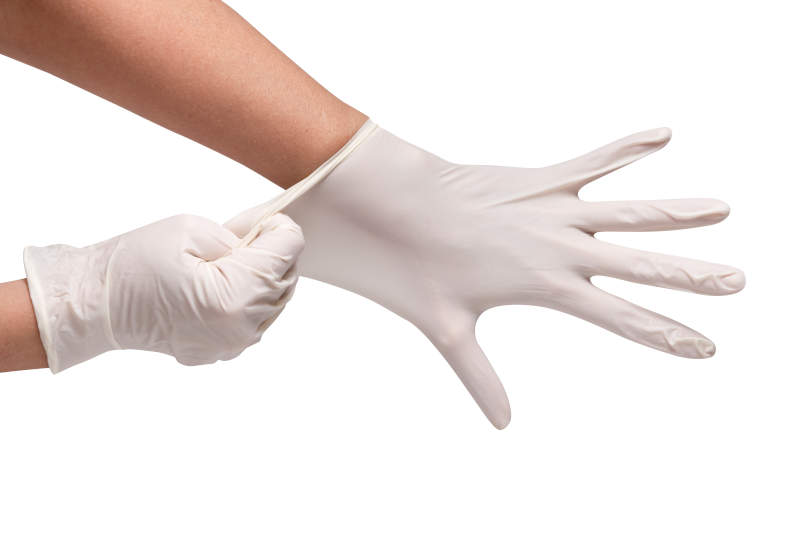Blog
-
April 18, 2024
In the quest for protective gear that caters to those with latex sensitivities, nitrile gloves emerge as a preferred alternative. However, navigating the nuances of safety, including the implications of factory residue and the specific terminology recommended by the FDA, is crucial for truly understanding their protective potential.
-
April 12, 2024
When selecting disposable gloves for various applications, whether in medical settings, laboratories, or for general cleaning or an industrial setting a common misconception often surfaces: thicker gloves are automatically stronger and more durable. This blog post aims to demystify this notion, highlighting why thickness is not the sole determinant of a glove's strength and why factors such as tensile strength and elongation are equally, if not more, important.
-
April 02, 2024
Medical gloves, sometimes called examination gloves, exam gloves or similar serve as crucial protective barriers in healthcare. Two important standards, ASTM D3578 and ASTM D6319, set quality and safety criteria for these gloves, but for different materials. Understanding the distinctions between these standards is key to choosing the right gloves for medical use.
-
March 22, 2024
In the food manufacturing industry, preventing cross-contamination is paramount to ensuring the safety and quality of food products. High-quality disposable gloves serve as an essential barrier against the spread of contaminants, playing a vital role in comprehensive food safety protocols. The most common materials used are nitrile, latex and vinyl. This article explores the importance of disposable gloves in the food manufacturing process, emphasizing their contribution to preventing cross-contamination and maintaining high standards of food safety.
-
March 15, 2024
In the high-stakes world of auto repair and maintenance, having the right pair of gloves can be as crucial as wielding the right wrench. UniSafe Gloves has pulled out all the stops to offer mechanics a lineup of nitrile gloves that are not just about protection but also about enhancing performance and comfort. From the durable and rugged Glovezilla to the precision-enhancing Pitbull, we've got your hands covered and we aim to do so while also saving you money.
-
March 07, 2024
In the realm of disposable gloves, whether used in medical settings, food service, or industrial applications, one critical measure stands out for ensuring quality and safety: the Acceptable Quality Level (AQL). This blog dives into what the AQL rating means, why it matters for gloves, and how you can use this information to make informed purchasing decisions.
-
March 04, 2024
When navigating the vast world of disposable gloves, price is undoubtedly a major consideration. Yet, it's essential to grasp that your choice hinges on finding the optimal balance between quality, safety, suitability, and cost. Whether you're choosing nitrile, latex, or vinyl gloves, understanding what "cheap" really gets you in this context is essential to making a good choice.
-
January 25, 2024
Choosing the right disposable glove size, whether they're nitrile, latex, or vinyl, is key to getting the best performance. Properly sized gloves should fit snugly. They should allow for full dexterity and touch sensitivity, without being overly tight or loose. If you’re used to a specific glove size, know that size measurements can vary by manufacturer. This size chart is intended for glove brands found on UniSafeGloves.com. Simply measure your hand circumference and hand length and reference the chart below for your approximate fit. If hand circumference and hand length correspond to two differing sizes in the chart, simply choose the larger size to arrive at your correct size based on the measurements of your hand.
-
October 03, 2023
There are a variety of solutions on the market for protective gloves. Nitrile and latex gloves are two of the most frequently chosen options. There are some significant distinctions between the two types of gloves that may make one a better option than the other despite the fact that both provide a high are appropriate for a variety of applications. In this article, we'll examine some of the benefits of nitrile gloves over latex gloves and explain why you might want to switch to nitrile.
-
September 19, 2022
If you're looking to buy dental gloves for your practice, you've come to the right place! Many people don't know the difference between all the different types of gloves that one could use in a dental practice. Choosing suitable gloves will help keep you and your patients safe while performing your job, make your job more comfortable and save you money. This article will cover tips on choosing the right dental gloves and specific examples of popular products in the market today.





